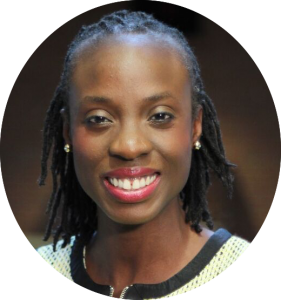By Conniel Malek, previously published on the Jamaica Observer, on Sunday, October 13, 2019.

My eyes filled with tears several times as I watched the media coverage of Hurricane Dorian’s devastation of The Bahamas. This story is becoming much too familiar.
Caribbean islands are acutely vulnerable to this climate crisis. Sea levels rising means that there will be more hurricanes on the way. It also means that there will be less and less island for us islanders to call home.
With each news story I found myself feeling overwhelmed and fearful. I was frustrated and confounded by those who still insist on denying climate change, but also perplexed by those who feel so inured to the statistics that they rest comfortably in inertia.

To lift my spirits and to fight the hopelessness, I turned to music. I didn’t have anywhere else to turn. After all, music has always been a salve for what ails me and a sure source of inspiration. However, it is more than that. Sometimes music shines a light on truths we have always known but pretend we cannot see. Sometimes it forces us to think with our hearts instead of just our minds. With the clichéd timing that only real life could produce, the first song that popped into my queue was the ubiquitous One Love. A staple from the prophet himself — Robert Nesta Marley. And in true Marley fashion, he didn’t disappoint.
One love, one heart
Let’s get together and feel all right
As it was in the beginning
So shall it be in the end
Let’s get together and feel all right
Let them all pass all their dirty remarks (one love)
There is one question I’d really like to ask (one heart)
Is there a place for the hopeless sinner
Who has hurt all mankind just to save his own?
Believe me
One love, one heart
Let’s get together and feel all right
As it was in the beginning
So shall it be in the end
One love, one heart
Let’s get together and feel all right
Let’s get together to fight this holy Armageddon
When the man comes there will be no, no doom
Have pity on those whose chances grow thinner
There ain’t no hiding place from the Father of creation
One love, one heart
Let’s get together and feel all right.
“One love, one heart”: Music aficionados and even casual listeners across the globe can cite the first two words of this song, and even hum the melody with ease. But few people pay attention to the second two words — One heart. When we listen to our hearts, we cannot help but open our arms. We must open our arms and our borders to accept and embrace the Bahamian climate refugees and all other climate refugees across the world.
“Let’s get together and feel all right”: Most people hear this line and relish its positive vibes. But it is more than a great line. We cannot feel alright until and unless we move and act together. We can only dream about “feeling alright” after we have done the hard work — the heart work — of togetherness.
Togetherness means continuing to insist that the United States rejoin the Paris Climate Agreement which many Caribbean countries have signed. Togetherness means pushing back on the expansion of carbon-emitting industries in a region struggling to maintain its precious biodiversity. Togetherness means Caribbean and Latin American countries uniting to sign climate-related treaties and other agreements that protect our human and environmental rights.
Togetherness means pushing back on the World Bank and other intergovernmental organisations’ crippling economic policies which deplete our islands’ abilities to invest in physical and social infrastructure that will make us resilient in such times of crisis.
“Is there a place for the hopeless sinner? Who has hurt all mankind just to save his own?”: Islanders and non-islanders alike, we have devastated our planet for ourselves and our children’s children, and we have to acknowledge and own that. We also have to acknowledge that we have turned a blind eye to unbridled, corporate-driven consumerism which leads us all to continually demand more. More plastic. More paper. More soil erosion. More deforestation. More water pollution. Individually and collectively, we must use less.
“Let’s get together to fight this holy Armageddon”: The unholy alliance between corporate profit and environmental degradation has been proven time and time again. With our climate destruction we have warmed the planet so much that we are basically inviting hurricanes in. We must face the truth of our current climate crisis — Armageddon, if you will. Therefore, our response must be equally Herculean. We must demand more accountability from corporations for the supply chain environmental impacts which have created and exacerbated this climate crisis.
“There ain’t no hiding place from the Father of creation”: We cannot hide from the scientific fact of this climate crisis any more than the people of The Bahamas were able to hide from Hurricane Dorian. It is here. We must defend science. We must replace fear with the fortitude it will take to limit global temperature rise to well below 1.5° Celsius.
So, what next?
First of all, don’t ever stop listening to Bob Marley. But after that, let us make the time to step away from the barrage of the news and the cycle of despair and inertia.
Let us turn towards the things that still bring us joy and will always tell us the truth, like music.
Let’s take the time to mourn for The Bahamas and reach out to help them.
Then, let’s move forward in togetherness to address this climate crisis with One Heart.
Conniel Malek is the executive director of True Costs Initiative. She is a graduate of Immaculate Conception High School and graduated cum laude from Cornell University with a BA in Government and a concentration in International Relations. After attending the University of Virginia School of Law, she went directly into corporate in-house law practice for 10 years, where she advised on commercial transactions, compliance and foundation matters and represented the company on several continents including Africa and South America.

Leave a Reply
You must be logged in to post a comment.